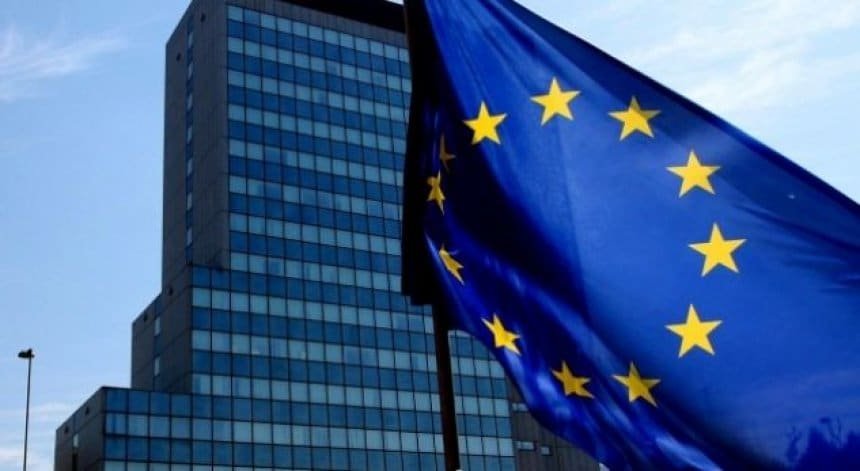Political Tensions Undermine Kosovo’s EU Path
Kosovo’s progress on the European Union (EU) agenda has been hindered by political infighting and post-election paralysis, according to the 2024 EU Progress Report draft, cited by Radio Free Europe.
Despite Kosovo’s strong pro-EU orientation and high public support for integration, the country’s internal divisions and fragile political climate have delayed reforms and stalled institutional progress.
Commitment to EU Values, But No Candidate Status
The European Commission notes that, unlike other Western Balkan countries, Kosovo still does not hold official candidate status, even though it applied for EU membership in December 2022.
However, Kosovo has voluntarily aligned its foreign policy with that of the EU, a move that Brussels has praised as evidence of genuine commitment to European values.
Gradual Lifting of EU Sanctions
The draft report reveals that the European Commission has begun lifting the punitive measures imposed on Kosovo in mid-2023. These sanctions followed violent unrest in the Serb-majority north, where the EU argued that Kosovar authorities failed to prevent escalation.
“Further steps will depend on continued de-escalation in the north,” the report states, adding that financial restrictions will be removed once local governance is regularly transferred following elections.
In the October 12 local elections, the Srpska Lista (Serb List)—the main Serb political party backed by Belgrade—won all four northern municipalities: Mitrovica Sever, Zvecan, Leposaviq, and Zubin Potok.
These municipalities were governed by Albanian mayors since 2022, after Serb representatives withdrew from Kosovo’s institutions in protest against government policies.
According to a May 2024 report by the GAP Institute, the EU’s punitive measures have cost Kosovo €613.4 million in suspended or delayed projects, with €7.1 million in direct financial loss. The most affected sectors include environment, energy, digitalization, and culture.
EU Pushes for Implementation of Kosovo-Serbia Agreement
The report urges both Kosovo and Serbia to implement all commitments under the 2023 Agreement on Normalization and its Implementation Annex.
Kosovo is specifically called to ensure equal access to basic public services for all communities, in line with its obligations under the EU-facilitated dialogue launched in 2011.
The last high-level meeting between Pristina and Belgrade took place in September 2023, while technical talks have continued intermittently without substantial progress.
EU Criticizes Serbia for Democratic Decline and Ties with Russia
While Serbia has opened 22 of 35 negotiation chapters, the EU report delivers a strong rebuke to President Aleksandar Vučić’s government, urging it to adopt a more transparent, democratic, and pro-European stance.
“The polarization of Serbian society has deepened due to massive protests organized by students and citizens since November 2024, reflecting public frustration with corruption, lack of transparency, and excessive use of force against demonstrators,” the draft notes.
Serbia is criticized for refusing to align its foreign policy with the EU, particularly its failure to impose sanctions on Russia amid the ongoing war in Ukraine. The report warns that Serbia’s granting of citizenship to Russian nationals, allowing visa-free access to the EU, poses serious security risks.
Additionally, Belgrade faces scrutiny over judicial interference, media restrictions, and the erosion of civil freedoms, undermining the rule of law and democratic standards.
Albania’s Rapid Progress Praised
In contrast, the European Union highly praises Albania for its unprecedented progress in the accession process. Since early 2024, five intergovernmental conferences have been held with Tirana, opening five negotiation clusters.
“Albania’s commitment is exemplary,” the report emphasizes, noting significant reforms in the judicial sector, the completion of the vetting process, and SPAK’s achievements in combating corruption and organized crime.
Albania has expressed its ambition to close all negotiation chapters by 2027, with full support from the European Commission, which insists the process remains based on merit.
Montenegro Leads, While North Macedonia and Bosnia Struggle
Montenegro is recognized as the most advanced country in EU accession, having opened nearly all negotiation chapters and closed seven.
Meanwhile, North Macedonia is urged to adopt constitutional amendments to include minorities such as Bulgarians, and Bosnia and Herzegovina faces criticism for internal instability caused by the Republika Srpska entity’s actions.
EU Enlargement as a Strategic Security Priority
The European Commission concludes that EU enlargement remains a core geopolitical tool to strengthen security, stability, and prosperity across the continent.
“A stronger and united Europe can only be built through close cooperation with our neighbors,” the report states. “Working together is essential for safeguarding shared democratic values and ensuring a stable future.”







